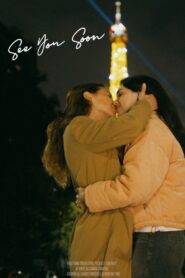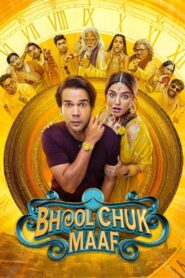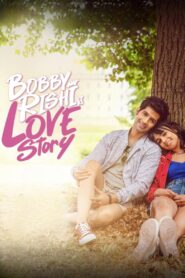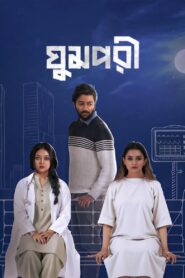
Video Sources 35 Views Report Error

My Friend Eva (2018) – A Deep Dive Into Friendship, Loss, and Redemption
Is love really all you need?Sep. 25, 2025Spain90 Min.N/A
Synopsis
“My Friend Eva“ (2018) is a poignant, emotionally charged drama that explores the complexities of friendship, grief, and the human capacity for healing. Set against the backdrop of a quiet European town, the film masterfully intertwines past and present to unravel the haunting yet heartwarming story of two young women bound by an unbreakable connection.

Understanding the Heart of My Friend Eva
At its core, “My Friend Eva“ is a story about relationships and emotional survival. The film follows Clara, a reserved and introspective photographer who returns to her hometown after the unexpected death of her childhood friend, Eva. What begins as a short visit to pay her respects soon evolves into a transformative journey through memories, secrets, and unresolved trauma.
The movie is a haunting reminder of the ways in which past experiences shape our present selves, and how grief—when faced with honesty—can become a gateway to healing.
Plot Overview: The Emotional Journey of Clara in My Friend Eva
Clara left her hometown over a decade ago, severing all ties with her past. She had built a quiet life in the city, burying painful memories of her teenage years. However, the death of Eva, her once inseparable best friend, forces Clara to confront the very memories she had tried to forget.
Upon returning, Clara discovers Eva’s journals, photographs, and artwork—all of which shed light on the vibrant, troubled, and fiercely loyal girl Eva was. Through these relics, Clara embarks on a psychological journey that reveals the depth of their friendship and the silent battles Eva fought alone.
Thematic Exploration in My Friend Eva
The Fragility of Mental Health
“My Friend Eva” doesn’t shy away from tackling the sensitive topic of mental health. Eva, though lively and charismatic on the outside, battled inner demons no one truly understood. Her journal entries reveal her emotional instability and the loneliness she masked with humor and creativity. The film gently but powerfully underscores the importance of mental health awareness, particularly among young women.
H3: The Impact of Friendship
The heart of My Friend Eva lies in the bond between Clara and Eva. Their friendship is portrayed with raw authenticity—from childhood games to whispered secrets and late-night talks. Their relationship evolves through the years, weathering misunderstandings, distance, and unspoken pain. Even after Eva’s death, her presence looms large, guiding Clara toward self-discovery.
Facing the Past
Clara’s return home is not just a physical journey—it’s deeply symbolic. Through her exploration of Eva’s life and their shared history, Clara is forced to face her own guilt, regrets, and unresolved emotions. The film’s layered narrative allows viewers to slowly piece together the events that led to Clara’s departure and Eva’s tragic end.
The Cinematic Style of My Friend Eva
Visual Symbolism
Director Sophie Lang uses a muted color palette to reflect Clara’s emotional state, contrasted by vibrant flashbacks that symbolize Eva’s vivacious spirit. The cinematography is both intimate and expansive, capturing the haunting stillness of the countryside as well as the dynamic energy of youthful memories.
Soundtrack and Atmosphere
The soundtrack of My Friend Eva is subtle yet evocative. Soft piano melodies, distant echoes, and the occasional inclusion of Eva’s own music recordings deepen the film’s emotional impact. The atmosphere is heavy with nostalgia, yet there’s a persistent glimmer of hope, beautifully echoing the film’s core message.
Character Development in My Friend Eva
Clara – The Survivor
Clara’s character arc is one of the film’s most compelling elements. Initially cold and disconnected, Clara gradually opens up as she uncovers the truth about Eva’s life and death. Her journey is one of redemption—not just for the way she left things with Eva, but also for abandoning a part of herself.
Eva – The Enigma
Though Eva is physically absent throughout the film, her presence is felt in every scene. Through flashbacks, diary entries, and interviews with others who knew her, Eva becomes a complex character—beautiful, flawed, loving, and deeply misunderstood. She is both muse and mystery, and her spirit guides Clara toward healing.
Why My Friend Eva (2018) Stands Out
Unlike many contemporary dramas, “My Friend Eva” doesn’t rely on melodrama or exaggerated conflict. Instead, it tells a quiet, honest story about real emotions and experiences. The film’s strength lies in its authenticity, its powerful performances (especially by lead actress Livia Berner as Clara), and its beautiful, lingering cinematography.
The narrative unfolds slowly, giving audiences time to connect with the characters and reflect on their own past friendships and losses. It’s a film that stays with you long after the credits roll.
Critical Reception of My Friend Eva
Critics praised “My Friend Eva” for its emotional depth and nuanced storytelling. Many applauded the director’s ability to balance the present and past timelines seamlessly, as well as the poignant performances of the lead actresses. The film was featured in several international film festivals and received awards for Best Screenplay and Best Cinematography.
Audiences connected with its honest portrayal of grief, the power of memory, and the bittersweet nature of friendship that transcends time.
Final Thoughts on My Friend Eva
“My Friend Eva” is a tender, soul-searching film that explores what it means to truly know someone—and to live with the knowledge that you may not have known them at all. It invites viewers to examine their own relationships and the emotional truths we often leave unspoken.
Through Clara’s journey, we learn that healing doesn’t come from forgetting, but from remembering, understanding, and forgiving—not just others, but ourselves.
If you’re looking for a deeply emotional, thought-provoking indie film that leaves a lasting impression, “My Friend Eva” (2018) is an absolute must-watch.
Original title Mi amiga Eva
IMDb Rating N/A N/A votes
Director
Director























